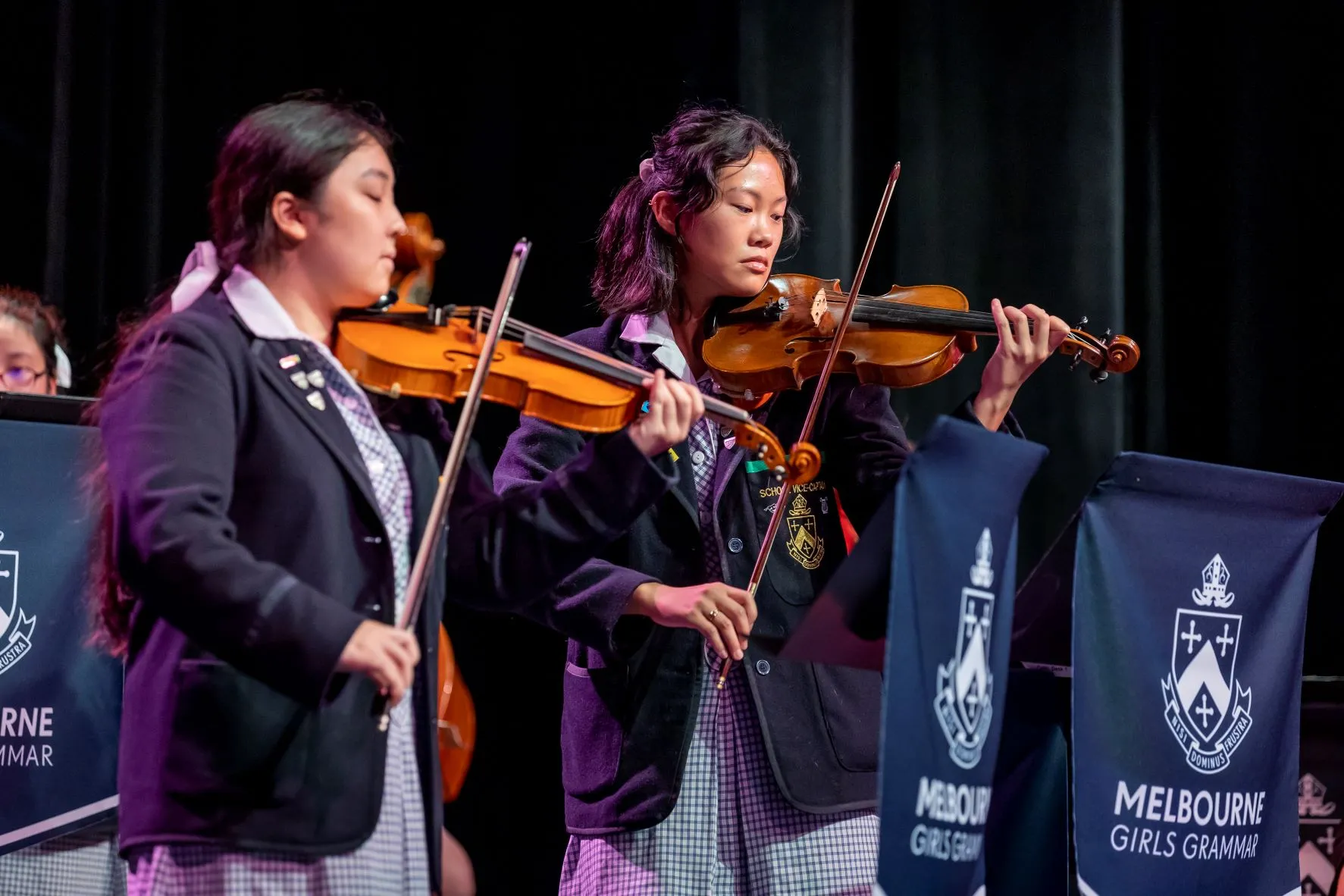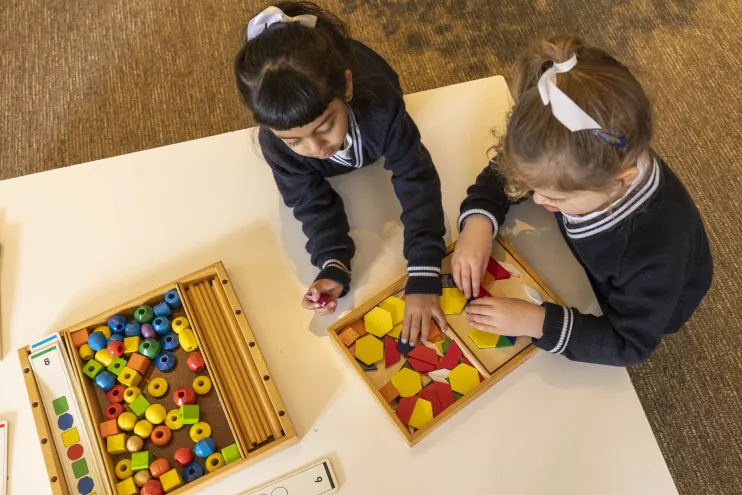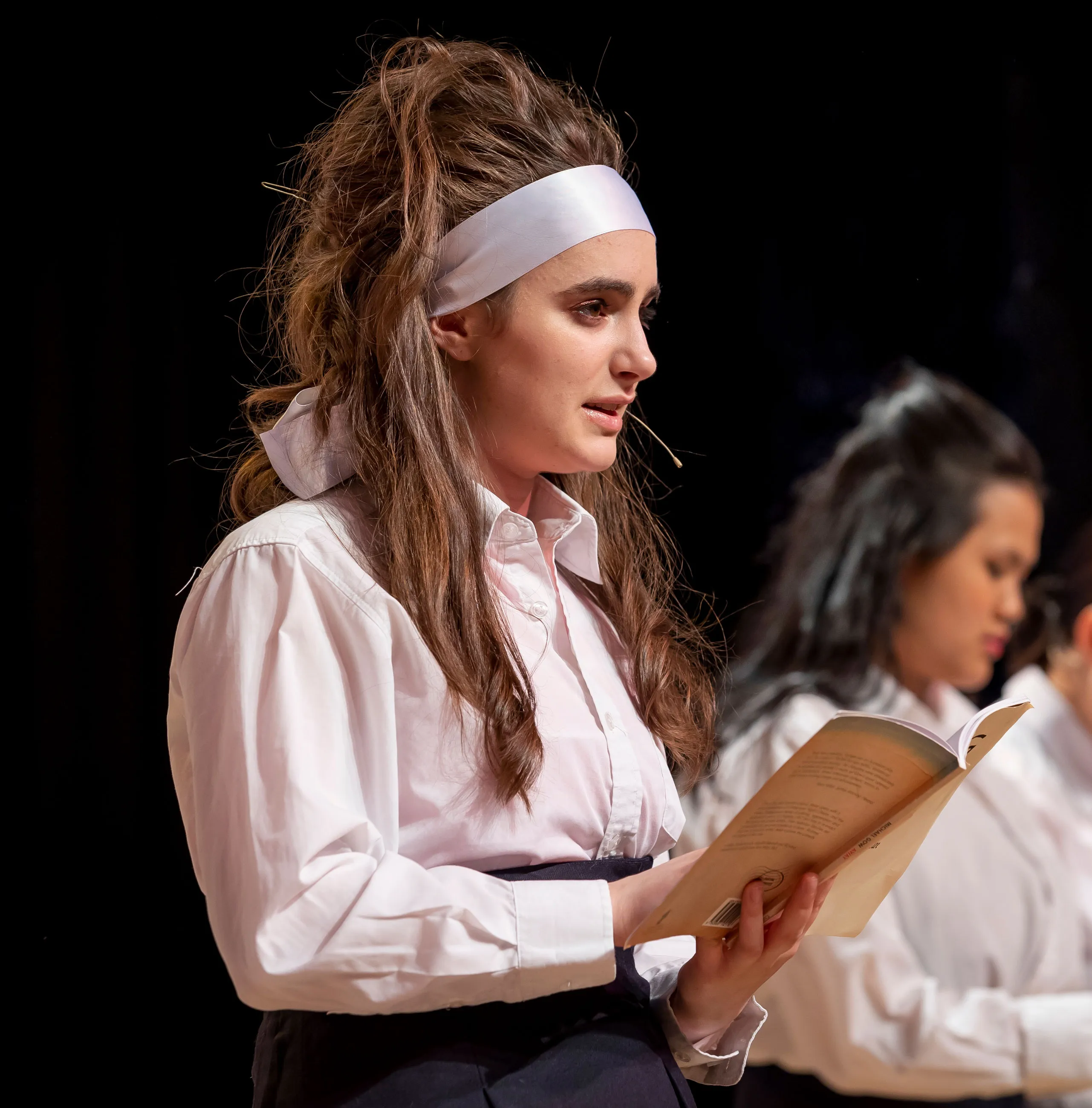



Passing on the Baton
In more than 20 years of service at Melbourne Girls Grammar, Deputy Principal Lynn Broadway has seen generations of Grammarians pass on a rich culture of valuing and respecting the School’s traditions, learning and excellence.
Lynn has witnessed many students progress through the School and knows better than anyone what has changed and what hasn’t in the past two decades. She started her journey with MGGS as Director of Middle Years in 1998, spending seven years in the role before being appointed Director of Learning for two years. She then became Deputy Principal in 2007 and has been a familiar face in the School’s Leadership team and for countless Grammarians in her time here.
Of the five schools Lynn has worked for in her distinguished career, she believes MGGS’s culture is the strongest and one that has really stood the test of time. She says the School’s culture is something Old Grammarians recognise whenever they return. They feel a familiarity of shared experiences and pride in their collective respect for the School, its history, buildings, and Houses. Like their predecessors, our Grammarians place a high value on their education, and respect their peers and staff. Lynn says, “the School’s values of integrity, compassion, self-discipline, and courage are markers of its culture”. She adds, “the values are not used as a yardstick, but as a way of demonstrating this is what's expected; this is how you behave”.


Lynn Broadway speaks at the High Achievers Assembly.



Lynn Broadway speaks at the High Achievers Assembly.


Music concerts are a popular tradition for Grammarians.


Our Grammarians are celebrated at a number of assemblies throughout the year.
Underpinning all of the values is respect – respect for each other, and respectful behaviour. This has been critical, she believes, in the success of an unwavering School culture. It has persisted across multiple generations, year levels, and campuses, independent of the individuals. It paves the way to empowering our Grammarians to take action and help others – in a variety of ways inside and outside the red brick walls. It also means that when we welcome new faces to the School – whether it's in ELC, Junior, Middle, or Senior Years – they can also quickly adapt to the culture because it is visible and tangible; it is something they easily connect with.
Underpinning all of the values is respect – respect for each other, and respectful behaviour. This has been critical, she believes, in the success of an unwavering School culture. It has persisted across multiple generations, year levels, and campuses, independent of the individuals. It paves the way to empowering our Grammarians to take action and help others – in a variety of ways inside and outside the red brick walls. It also means that when we welcome new faces to the School – whether it's in ELC, Junior, Middle, or Senior Years – they can also quickly adapt to the culture because it is visible and tangible; it is something they easily connect with.
Underpinning all of the values is respect – respect for each other, and respectful behaviour. This has been critical, she believes, in the success of an unwavering School culture. It has persisted across multiple generations, year levels, and campuses, independent of the individuals. It paves the way to empowering our Grammarians to take action and help others – in a variety of ways inside and outside the red brick walls. It also means that when we welcome new faces to the School – whether it's in ELC, Junior, Middle, or Senior Years – they can also quickly adapt to the culture because it is visible and tangible; it is something they easily connect with.




House Drama is one event that brings together the whole school.



House Drama is one event that brings together the whole school.


Junior and Senior Grammarians interact frequently at House events.


Our Grammarians show a lot of passion when it comes to their House colours.


Students enjoy the thrill of House Sport events such as swimming.


House Drama is one event that brings together the whole school.


Junior and Senior Grammarians interact frequently at House events.


Our Grammarians show a lot of passion when it comes to their House colours.


Students enjoy the thrill of House Sport events such as swimming.
What struck Lynn very early on in her time at MGGS is the strong culture to set goals and work towards achieving high personal standards. Students are encouraged to not only do their best, but also to accept and celebrate the extraordinary. Early in her days at MGGS, she remembers a Year 7 student who studied Year 11 Maths at a young age and won numerous Maths awards. The young Grammarian’s achievements were often celebrated in school assemblies, and those appearances also came with a standing ovation from her peers. Lynn says this is one of many examples of how our Grammarians value excellence and celebrate their peers’ achievements. “They really appreciate the value of education and that some people really excel and they're very encouraging of it. In some schools, you would not see that. That's been really important as well.”
Lynn says the current House system, which has been in place since 1965, is another example of how our Grammarians connect and show respect for each other and for the School's traditions. She says the Houses are “very ingrained in the way our students feel a sense of belonging to the School. They're passionate about their House and their colours, but they're not overly competitive.” For them, it is a friendly competition, and they appreciate the efforts of others — no matter the House.
What struck Lynn very early on in her time at MGGS is the strong culture to set goals and work towards achieving high personal standards. Students are encouraged to not only do their best, but also to accept and celebrate the extraordinary. Early in her days at MGGS, she remembers a Year 7 student who studied Year 11 Maths at a young age and won numerous Maths awards. The young Grammarian’s achievements were often celebrated in school assemblies, and those appearances also came with a standing ovation from her peers. Lynn says this is one of many examples of how our Grammarians value excellence and celebrate their peers’ achievements. “They really appreciate the value of education and that some people really excel and they're very encouraging of it. In some schools, you would not see that. That's been really important as well.”
Lynn says the current House system, which has been in place since 1965, is another example of how our Grammarians connect and show respect for each other and for the School's traditions. She says the Houses are “very ingrained in the way our students feel a sense of belonging to the School. They're passionate about their House and their colours, but they're not overly competitive.” For them, it is a friendly competition, and they appreciate the efforts of others — no matter the House.



The COVID-19 pandemic has highlighted to Lynn how important the Houses are to the School’s enduring culture and how much Grammarians value this tradition. She adds that it has highlighted the importance of being together and seeing the bigger picture of the whole School. But despite the prolonged disruption to the scheduled House events, Lynn says the School will slot back in like nothing had changed.
Student leaders and transition events play a big part in ensuring the School’s culture is carried through the generations. Student leaders are elected by the students and tasked with embodying the values and passing on the culture. Lynn says the leaders are very conscious of their responsibilities to their peers and their roles of setting the tone for the rest of the School. Our younger students look up to the leaders and aspire to follow in their footsteps. Transition events also involve student leaders passing on the School’s culture and traditions. Regardless of whether someone is a leader or not, each of our Grammarians, inherit the MGGS culture and are custodians during their time as students, ultimately passing it on, having ensured the legacy remains intact for future generations.
The COVID-19 pandemic has highlighted to Lynn how important the Houses are to the School’s enduring culture and how much Grammarians value this tradition. She adds that it has highlighted the importance of being together and seeing the bigger picture of the whole School. But despite the prolonged disruption to the scheduled House events, Lynn says the School will slot back in like nothing had changed.
Student leaders and transition events play a big part in ensuring the School’s culture is carried through the generations. Student leaders are elected by the students and tasked with embodying the values and passing on the culture. Lynn says the leaders are very conscious of their responsibilities to their peers and their roles of setting the tone for the rest of the School. Our younger students look up to the leaders and aspire to follow in their footsteps. Transition events also involve student leaders passing on the School’s culture and traditions. Regardless of whether someone is a leader or not, each of our Grammarians, inherit the MGGS culture and are custodians during their time as students, ultimately passing it on, having ensured the legacy remains intact for future generations.
The COVID-19 pandemic has highlighted to Lynn how important the Houses are to the School’s enduring culture and how much Grammarians value this tradition. She adds that it has highlighted the importance of being together and seeing the bigger picture of the whole School. But despite the prolonged disruption to the scheduled House events, Lynn says the School will slot back in like nothing had changed.
Student leaders and transition events play a big part in ensuring the School’s culture is carried through the generations. Student leaders are elected by the students and tasked with embodying the values and passing on the culture. Lynn says the leaders are very conscious of their responsibilities to their peers and their roles of setting the tone for the rest of the School. Our younger students look up to the leaders and aspire to follow in their footsteps. Transition events also involve student leaders passing on the School’s culture and traditions. Regardless of whether someone is a leader or not, each of our Grammarians, inherit the MGGS culture and are custodians during their time as students, ultimately passing it on, having ensured the legacy remains intact for future generations.


















_crop.webp)


